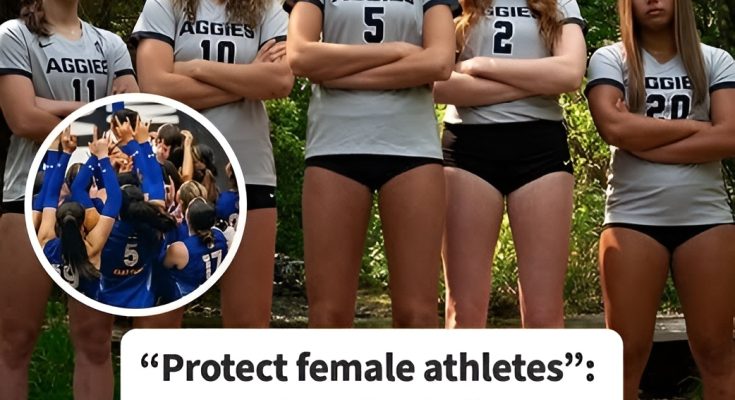Utah State was set to play volleyball against San Jose State but backed out after learning that a trans athlete would be competing on the opposing team. This decision is part of a larger debate surrounding trans athletes in sports. While some support the idea of equality, others believe that trans athletes may have a physical advantage over competitors.

Utah State became the latest of several universities to forfeit games due to this issue. Although none of the schools directly linked their decision to the presence of a trans athlete, the University of Wyoming mentioned that they had discussions before making a similar choice. Utah State released a statement saying they would follow Mountain West Conference guidelines on how the match would be recorded.
Michelle Smith McDonald, a spokesperson for San Jose State, said the university cannot comment on a student’s gender identity due to privacy laws. She expressed disappointment, stating that the student-athletes at San Jose State, who follow NCAA and Mountain West regulations, were being denied the chance to compete. The school is committed to providing a fair and respectful environment for all athletes.

The controversy began when a conservative website reported rumors about a trans athlete at San Jose State. This led to universities withdrawing from games, amplifying the debate. In addition, several female athletes have filed a lawsuit against the NCAA, claiming that the inclusion of trans athletes violates Title IX, which protects women’s sports.
The lawsuit alleges that one athlete suffered emotional and physical harm from competing with a trans athlete. The NCAA has stood by its decision, emphasizing the need for fair competition and its commitment to women’s sports.
This situation also raises questions about the privacy rights of trans athletes, as their identities were disclosed without permission. Some argue that these forfeits and actions are part of a broader attack on the LGBTQ+ community, while others believe they are harming all students involved.



